Announcer:
The following program is a PBS Wisconsin original production.
Robin Vos:
The idea that we’re somehow going to spend more than we would have or done a policy that we wouldn’t have supported before. Absolutely not. You know, it’s just not going to happen.
Frederica Freyberg:
Even as they hold a slimmer majority, Republican legislative leaders balk at bending to their Democratic counterparts.
I’m Frederica Freyberg. Tonight on “Here & Now,” we hear from legislative leaders about what’s changed for the upcoming year. Our political panelists say buckle up for the new Trump administration and a game changing state Supreme Court race. Plus, what’s the status of bird flu in Wisconsin as we hit the new year and is enough being done? It’s “Here & Now” for January 3.
Announcer:
Funding for “Here & Now” is provided by the Focus Fund for Journalism and Friends of PBS Wisconsin.
Frederica Freyberg:
The new year always brings the opportunity to look ahead, but we wanted to take one more opportunity to look back. A year ago, at the end of 2023, Here & Now senior political reporter Zac Schultz sat down with legislative leaders and asked them to define what success would look like for them in the coming year. Remember, this was before the Wisconsin Supreme Court had declared we would have new legislative maps. Joe Biden was the Democratic nominee for president, and some Republicans were trying to find an alternative to Donald Trump as the Republican nominee. So as 2024 came to a close, we asked the legislative leaders to reassess their vision of success.
Zac Schultz:
End of year interviews typically have the same format. Ask the politician to wrap up the old year and what do they want to achieve in the new year? But in December of ’23, it was clear 2024 could bring in some big changes and we wanted to know what Wisconsin’s legislative leaders would call success. A year from now, how will you determine success? What will be the criteria that we use to judge whether you had a successful year-end campaign going into next winter?
Greta Neubauer:
Yeah. So in terms of our work inside of the Capitol, I would say we as Assembly Democrats really have three priorities. We protect the governor’s veto and we prevent far right legislation from moving forward in Wisconsin.
Zac Schultz:
A year ago, Representative Greta Neubauer was looking in two directions as the Democratic minority leader in the Assembly. With only 35 members, she had to make sure everyone was present on the floor days to prevent Republicans from having the two-thirds majority needed to overturn Governor Evers’ vetoes. And with a redistricting case in front of a liberal majority on the Wisconsin Supreme Court, she was looking at recruiting candidates to run for office in 2024.
Greta Neubauer:
We are again recruiting candidates and building our infrastructure so that we are in a great position regardless of what happens in the court, but particularly if there are fair maps to be able to compete for the majority.
Zac Schultz:
Democrats did prevent any Republican veto overrides from occurring, and they picked up ten seats in the Assembly in November. In December, I asked her to reassess her vision of success.
Greta Neubauer:
On the campaign side, of course, we’re always going for the majority. We didn’t quite get there this year, but again, in a tough year for Democrats, we’re really pleased with the gains that we did make this cycle, and we’ve got folks who are set up really well for two years from now. In many of these districts, we didn’t have competitive Assembly races for over a decade. Now, we’ve got grassroots infrastructure. We’ve got experienced candidates. We’ve got, you know, local folks who are mobilized and excited to participate in those competitive elections. And I think we’ve learned a lot about how to run in this new environment.
Zac Schultz:
In the Senate, last year the minority leader was Melissa Agard, but she left to run for Dane County executive. How will you define success one year from now?
Melissa Agard:
You know, I think that success a year from now is going to continue ensuring that everyone knows that their vote does matter and that it is safe and secure here in the state of Wisconsin. I think that having success here in Wisconsin is picking up more seats for Democrats in the Senate and in the Assembly and being able to have the governor’s back.
Zac Schultz:
Senator Diane Hesselbein is now the Democratic minority leader. They picked up four seats in the Senate, putting them in position to compete for the majority in 2026.
Diane Hesselbein:
She got an A+. Yeah, I think those were great things to be aspirational. I think she did just that.
Zac Schultz:
A year ago, Republicans weren’t sure what new legislative maps would mean for Speaker Robin Vos’s large majority. And Republicans were divided on whether Donald Trump should be the nominee for president. One year from now, how will you judge success?
Robin Vos:
Coming back with a good, strong majority is a good way. Boy, if we have a Republican president, that would be a big success and better for the country. Hopefully we would be fighting inflation. We’d actually have a world that looks at America with respect and most importantly, we’d have a budget that is affordable for the next generation, not driving us into bankruptcy with inflation. I also feel like we will hopefully at the time, have the ability to help — hopefully have a good, strong budget to be able to move forward. So I think the number one thing, of course, is looking at what happens in the elections. That’s how we always judge where we are. But we’ve had so many successes this time we’ll have to kind of work on what’s going to happen in the next session.
Zac Schultz:
Republicans lost seats but won enough of the swing districts to maintain their majority. And Vos will continue his run as the longest serving Assembly speaker in state history. How would you grade your predictions?
Robin Vos:
I guess that’s pretty good, actually. I’m glad I did that. I mean, obviously we have a GOP president. That’s good for the country. We kept the majority. The Democrats were certain that if they had new maps, they would be able to get the majority. What I’ve said for really the entire time I’ve been elected is we have better candidates, a better message, and people who work harder. We proved that correct. That’s great. Inflation, that’s what we’re going to — that’s our last step in the equation, because I really thought that those tax cuts would have already taken effect. Here we are where Governor Evers kept the money in the treasury. We’re still going to have a chance to correct that one last thing, and maybe I’ll get all three right.
Zac Schultz:
Reporting from Madison, I’m Zac Schultz for Here & Now.
Frederica Freyberg:
So legislative Democrats made some gains but a state budget battle looms with a probable fight over whether to cut taxes or spend a $4 billion surplus. In Washington, look for President Donald Trump to act fast on his priorities. And then turn your attention back to Wisconsin for another supersized election for control of the state Supreme Court. The discussion of what’s ahead politically in the new year is teed up for our panelists. Republican Bill McCoshen and Democrat Scot Ross. And thanks for being here.
Bill McCoshen:
Happy New Year.
Frederica Freyberg:
So first to you, Bill. Let’s start with what we’re going to see out of the new Trump administration.
Bill McCoshen:
So I would say this is going to be the NASCAR start: all gas, no brakes. I expect to — more than, maybe several hundred executive orders on day one. I expect them to come forward with a reconciliation package, probably in February, that includes immigration and energy. A second one later in the year on government reform and taxes. They have two opportunities. There are team votes, including for speaker. We’re on to round two on that already. Hopefully Mike Johnson will get that and we can get back to business. But I think there will be a fast and furious start for the Trump administration. I think the four years between his terms, they’ve learned a lot. They knew what they did wrong in the first term, and they’ll be more prepared this time.
Frederica Freyberg:
So it’s a hold on to your hats moment. Scot, do you think Democrats will work with the Trump administration in any measure?
Scot Ross:
I really hope not because the things that they’re going to do are going to, you know, dismantle the social safety net, attack the rights of people. You know, I mean, we’re going to have mass deportations. We’re going to have trans people, you know, bullied into suicide with their things. I mean, it’s going to be a bloodbath. And also that they can raid our treasury and give billionaires even more money, you know? And so I think — so I hope Democrats are not up to it and they shouldn’t be, because I’ll tell you, I got an A, B, C rule and I’m going to give you the B, which is bipartisanship is BS. Donald Trump, you know, in 2016, he said, oh — hinted that he might prosecute his political enemies. In 2020, he got a little bit more aggressive. In 2024, he went all in on, you know, on attacking Democrats. And that was it. I’m not working with the Democrats. And he did better this time.
Frederica Freyberg:
So you don’t think it’s incumbent on Democrats to acknowledge the electoral popularity of Donald Trump after having apparently misunderstood their base?
Scot Ross:
Well, you know, I’ll tell this — a little story. So a couple weeks before the election, my wife is like, “You know, I don’t think she’s going to win.” And I’m like, “I don’t want to hear it” because, like, I’ll live in that world if it exists. I’m going to live in denial. Like there’s nothing I’m going to do about it. And after, I go to her and I was like, you know, hat in hand, I’m like, what happened? She’s like the joy thing. She’s like, we have a comfortable life, you know? Do you feel joy? And I’m like, well, when I’m around you. But generally, no. So why were people going to feel joy, you know? Who felt joy? The people who were on the gravy train, you know, and suddenly were able to, you know, be in a position where they could be president, you know, and the consultants and all that sort of thing. It wasn’t, you know, they weren’t — it wasn’t a reflection of reality as it turns out. I bought into it, but I was wrong.
Bill McCoshen:
I think Democrats missed the signal. The voters were telling us something very specific. Trump picked up on it early on, and he capitalized on it. And that’s why he actually won 231 congressional seats. And he won 57 Senate seats. So I think there is some room for bipartisanship in this coming Congress.
Frederica Freyberg:
Bill, how do you think day one priorities like mass deportations, apparently help people with the cost of groceries?
Bill McCoshen:
Well, I think that’s one function. He got elected on that. There’s no question about that. Whether it was — the Trump people think it was his number one issue. I still think the economy was the number one issue. And both of those things are going to get done in the first six months. But it probably — you’re not going to see massive reduced grocery prices in the first couple months. But if you haven’t by summer, I think that’s a pretty good start for the Trump campaign.
Scot Ross:
I mean, I think the problem is, is that like, when you talk about bipartisanship, that this is not the Republican Party that deals with bipartisanship anymore. You know, there are Democrats who are thinking, oh, I still want a Republican Party where we can come together and put a man on the moon, you know. The Republican Party basically now denies that we even landed on the moon, essentially, in that way. There is no room for bipartisanship with them. Democrats do that at their peril. And again, Republicans have been saying no to Democrats since they were rolling old man Cheney off the dais on January 20th, 2009. They have never worked with the Democrats and suddenly there, you know — suddenly that’s — they’ve paid no price for it basically is what I was going to say. So why would they do it now?
Frederica Freyberg:
I want to come back here to Wisconsin and what you call the Super Bowl of politics, that being the spring election for state Supreme Court. Why is it the Super Bowl?
Bill McCoshen:
This is the biggest election. It’s for control of the Wisconsin Supreme Court. Currently, it’s a 4-3 progressive majority. One of the four progressives is not running for re-election. And so there’s an opportunity for conservatives to take back the majority. And if they don’t get it this time, the next opportunity doesn’t present itself until 2028. So there’s — progressives will have this majority for some time, and they could undo things like Act 10. They could undo school choice. They could undo some of the welfare reforms and many, many other things. So it is the Super Bowl for conservatives and Republicans, and it’s incumbent upon us to get behind Brad Schimel quickly, early. He’s a battle-tested candidate. He’s run statewide twice before. He was successful in the first bid. He was unsuccessful in the second bid, primarily because there was a third-party candidate in here who prevented him from beating Josh Kaul. So I think he’s a strong candidate. It’s going to be the most expensive race in Wisconsin history.
Frederica Freyberg:
How does Susan Crawford win this?
Scot Ross:
Oh, I think she’s a terrific candidate. She’s ten years a prosecutor. You know, she’s — then went into private practice where she protected workers’ rights, abortion rights and voting rights. And then she went on to be a respected judge, which she is now. Brad Schimel, on the other hand, is a partisan hack. I mean, he was fired.
Bill McCoshen:
He’s a judge in Waukesha County.
Scot Ross:
Yes. And he’s a judge because he and Scott Walker, you know, in the lame duck after they both got fired for their performance. You know, voters fired them. He appointed him a judge. The fact is is that Brad Schimel, you know, bungled prosecutions of sex offenders, the rape kit backlog was massive under him. And, you know, I’ll give you, I’ll give you another one. You know, 71 or 72 counties begged, they passed resolutions begging Brad Schimel and Scott Walker to do something about the opioid crisis. Brad Schimel, after being the only state candidate in Wisconsin history to take a PAC check from Purdue Pharma, the big opioid kingpin. He refused to prosecute, absolutely refused to prosecute. And it wasn’t a lot of money. It was only $250. But like the question is, can you be bought for that little or did you actually think Purdue shouldn’t be held accountable? Josh Kaul, on the other hand, $750 million to help the effects of that has come into the state of Wisconsin because Brad Schimel is no longer the attorney general.
Bill McCoshen:
I think Democrats are going to be careful what they wish for here. This Act 10 case that was adjudicated in Dane County Circuit Court is now in the appellate court, could make it to the Wisconsin Supreme Court. A year ago, I think Scot and I will agree on this, Janet Protasiewicz sort of changed the rules on judicial elections. Used to be that judicial candidates couldn’t take positions on cases that might come before them. Janet Protasiewicz erased that bright line on whether it was the maps or abortion or a variety of other things. So Schimel is going to have to take advantage of that and tell people Act 10 is going to be repealed if you don’t — if you elect Susan Crawford. School choice, if you choose a charter school or a choice school or open enroll your kid, that could all go away if Susan Crawford is elected. So he’s going to have to motivate the same voters that elected Donald Trump. The low propensity voters, the mid propensity who typically don’t turn out in April.
Scot Ross:
So it’s going to be about — we’re suddenly going to, you know, the Wisconsin Supreme Court is going to suddenly have purview over immigration and transgender issues. That’s going to be what Brad Schimel’s campaign. He’s already, he’s already talking about those things. It’s going to be the sort of divisive, you know, destructive campaign that we saw from Trump, that we saw from Schimel. I do not believe Schimel will be, will be elected in any way, shape or form, mostly because, you know, the credentials of Susan Crawford. You know, the bad stuff that we have with Brad Schimel, but also the fact that it is going to be insane what the Republicans do and Democrats are always motivated once we’ve lost the big battle to clean things up. And I think that’s, you know, where we’re at.
Bill McCoshen:
Well, ratings for a lot of progressive shows are at their all-time low. I think Democrats are demotivated by what happened in November. And I think that will continue through April.
Frederica Freyberg:
We have a lot more to talk about and we will in the coming months. Bill McCoshen, Scot Ross, thank you.
Scot Ross:
Thank you.
Bill McCoshen:
Thank you.
Frederica Freyberg:
The Wisconsin Elections Commission late this week voted unanimously to launch an investigation into the city of Madison clerk over nearly 200 missing absentee ballots in the November election. The commission first learned of the ballots that were cast, but not counted in late December, six weeks after Election Day.
Ann Jacobs:
I thought this was so egregious that it was important we move immediately.
Don Millis:
I suppose my biggest concern here is why it took a month and a half for this to come out. And that’s very, very disturbing. And I’m hoping we can determine why that happened as well.
Frederica Freyberg:
Election officials say the ballots not counted in Madison did not affect final results of any federal, state or municipal race.
In other news, just before Christmas, former state Senator Tim Cullen of Janesville passed away.
Tim Cullen:
I believe that anybody who is going to vote for this bill ought to go to Mellen.
Frederica Freyberg:
Cullen served in the Senate from 1974 to 1986, including as Majority leader. He was then appointed Secretary of the Wisconsin Department of Health and Social Services under former Governor Tommy Thompson. Cullen left for the private sector, becoming the VP of Blue Cross and Blue Shield, only to reenter politics, running and winning his seat back in the state Senate in 2010. He was among the 14 Senate Democrats who fled Wisconsin over the Act 10 vote. He retired in 2013. In retirement, Cullen advocated strenuously against legislative gerrymandering. He was the author of three books. Former state Senator Tim Cullen was 80 years old.
Former state senator Republican George Petak also passed away December 23rd. Petak cast the deciding vote to fund construction of Miller Park. That 1995 vote cost Petak his Senate seat but kept the Milwaukee Brewers franchise in Wisconsin. He was 75.
In public health news, is bird flu or highly pathogenic avian influenza high risk for livestock and poultry flocks but low risk for humans and could that change? For the latest on the status of bird flu outbreaks in Wisconsin, we turn to Tom Haupt, influenza research scientist at the Wisconsin Department of Health Services. And thanks very much for being here.
Tom Haupt:
Thank you, Frederica. I appreciate the invitation.
Frederica Freyberg:
What is the current status of bird flu outbreaks in Wisconsin?
Tom Haupt:
Well, we’ve had approximately 4 or 5 commercial outbreaks and one backyard flop. As far as human cases, we have had only the one human case. That person has made a complete recovery. Thank goodness. As far as other testing, we have tested about 3 or 4 other people. All have come back negative, but we continue to monitor very closely in conjunction with the Department of Agriculture, Trade and Consumer Protection and the DNR to monitor all kinds of wildlife, any kind of flocks. We have had no cattle, dairy farms in Wisconsin that have been infected so far. We’re hoping it stays that way.
Frederica Freyberg:
Could there be more human cases out there that people just haven’t been tested or they think they’ve got a cold or, you know, what are the concerns about that?
Tom Haupt:
That definitely could be the case. And especially now when influenza has started to spike the way it has been over the past couple of weeks. And we’ve over doubled, doubled our number of cases for seasonal influenza over the past few weeks. So there could be some people who probably should be tested but are not being tested. But we really are trying to be very conservative on this and make sure that we try to capture everybody who may have had exposure. Make sure that they are tested for flu.
Frederica Freyberg:
Speaking of flu and seasonal influenza, I understand that the CDC provided flu vaccines to 12 states that also were affected by bird flu to prevent this kind of co-infection of both the human flu and the bird flu that could lead to kind of emerging variants of that that could be more transmissible. Why didn’t Wisconsin participate in that CDC vaccine program?
Tom Haupt:
It actually was not Wisconsin’s decision. There was like six initial states that were categorized to get it at first. We’re hoping to be part of the second or third round to get this vaccine from the CDC. But again, it was not in our hands.
Frederica Freyberg:
How worrisome is it from a public health standpoint that co-infection of these two different influenzas?
Tom Haupt:
Anytime you have co-infections, it’s always a concern whether it’s with avian influenza and seasonal influenza, COVID, RSV, whatever the case may be. The more pathogens that actually are infecting a person, the more severe the outcome could be which could lead to hospitalization and unfortunately deaths and that’s what we’re trying to prevent. Making sure we’re getting people tested in a timely manner at a proper laboratory, which now is the Wisconsin State Laboratory of Hygiene, to get that information and to get those tests run as quickly as possible. But yes, it definitely could be a concern.
Frederica Freyberg:
What’s the best advice for people as we head into the peak of the seasonal flu season here in the midst of this kind of avian influenza outbreak?
Tom Haupt:
Well, we need to control what we can control and that’s two things. One is to get the vaccine for influenza. Our numbers are a little bit low. They’re about 30.7%, which is just a couple percentage points lower than what it was last year, which is a bit disappointing to be honest with you. We need to do a better job because we are optimistic that the vaccine is going to be effective in preventing severe illness and in many cases, it will be effective in preventing illness altogether. The other thing is to practice good hygiene: coughing into your sleeve, sneezing into a tissue, throwing it away right away, washing your hands. And above all, if people do get sick, stay home and give yourself the time to heal. Too many people think it’s just allergies or as you said, just a minor cold. They could be infecting someone who could be at high risk, and that person could actually result in becoming hospitalized and hopefully — and not — and really, hopefully it’s not that it won’t result in any kind of fatalities.
Frederica Freyberg:
As for the avian influenza, what should people be looking for to see whether or not that might be what they have?
Tom Haupt:
Yeah, it’s very hard to say at this point. One thing that we do definitely look at at the state is do you have an exposure? Do you have an exposure to any kind of birds with a die off, whether it be wild birds, poultry, anything like that? Do they work on a farm? You know, on a dairy farm where maybe the cows are not producing the milk the way they’re supposed to be doing, or they’re — the milk is very unusual. I mean, those are the people who come down with symptoms where we really want them to consider testing, calling the local or state health departments. We can arrange for testing to be done as quickly as possible, but the symptoms that could be very vague. I mean, it could be just conjunctivitis. It could be just an upper respiratory, mild upper respiratory illness. It’s really not a precise symptomology when you’re dealing with HPAI, highly pathogenic avian influenza.
Frederica Freyberg:
Well, I know you will be watching this on all of our behalves. Tom Haupt, thank you very much.
Tom Haupt:
And thank you, Frederica. I appreciate it.
Frederica Freyberg:
The UW American Family Children’s Hospital reports this week that two students gravely injured in the Abundant Life Christian School shooting have had their conditions upgraded. The two came into the hospital with critical injuries but are now listed in fair condition. It was December 16 when a fellow 15-year-old student shot and killed a teacher and a 14-year-old inside the school before fatally turning the gun on herself, according to police. Six others suffered gunshot wounds and were taken to the hospital. All but the two students, whose conditions are now improving, were treated and released. Madison Police tell us they are continuing their investigation and have filed warrants for shooter Natalie Rupnow’s online communications to determine if any charges should be filed.
Finally, tonight, a conversation with a Milwaukee native who is one of Hollywood’s top filmmakers. “Here & Now” reporter Murv Seymour takes us to the big screen as he chats with John Ridley about cultivating artists and making movies in the state. Here’s a sneak peek at this month’s “In Focus with Murv Seymour” interview.
Murv Seymour:
Will we ever see a situation where John Ridley shines a light on a Milwaukee story in Milwaukee?
John Ridley:
Oh yeah, we’ve been doing that through No Studios. We do mini docs. We get out. We tell stories. That’s something that’s very important for us. You know, we do storytelling in No Studios in ways that aren’t just about film either. You know, we have our dance fest every year where we celebrate dance. We celebrate motion. We celebrate all of that. So yeah, there are a lot of stories out there to tell. We’ve been telling the stories. We’re going to continue to tell the stories. If you’re asking in a bigger sense, like a motion picture, until Wisconsin gets tax credits and that’s something that I’ve advocated for, no, that’s not going to happen. You have — I don’t want to say it’s not going to happen. It’s going to be a challenge because those tax credits, like any other business, it’s really, really important in terms of attracting Hollywood dollars or Hollywood spend. So yes, we are telling stories. We continue to be engaged in Milwaukee and Wisconsin. But in terms of doing feature films out here, whether it’s myself or anybody else, Wisconsin, I’m going to look into the camera, you got to get tax credits. We’ve talked about this. You got to advocate for tax credits. Please do that. Reach out to your representatives. There are no Hollywood — there are no dollars that are better than Hollywood dollars. There really aren’t in terms of spending. Better than Foxconn, I’ll tell you that. Oh, I will tell you that.
Frederica Freyberg:
For more on this and other issues facing Wisconsin, visit our website at PBSWisconsin.org, and then click on the news tab. That’s our program for tonight. I’m Frederica Freyberg. Have a good weekend.
Announcer:
Funding for “Here & Now” is provided by the Focus Fund for Journalism and Friends of PBS Wisconsin.
Search Episodes
Related Stories from PBS Wisconsin's Blog

Donate to sign up. Activate and sign in to Passport. It's that easy to help PBS Wisconsin serve your community through media that educates, inspires, and entertains.
Make your membership gift today
Only for new users: Activate Passport using your code or email address
Already a member?
Look up my account
Need some help? Go to FAQ or visit PBS Passport Help
Need help accessing PBS Wisconsin anywhere?

Online Access | Platform & Device Access | Cable or Satellite Access | Over-The-Air Access
Visit Access Guide
Need help accessing PBS Wisconsin anywhere?

Visit Our
Live TV Access Guide
Online AccessPlatform & Device Access
Cable or Satellite Access
Over-The-Air Access
Visit Access Guide
 Passport
Passport





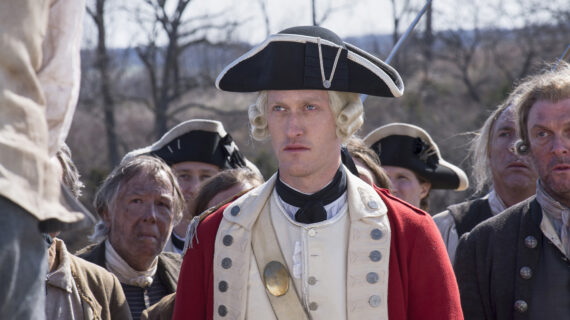
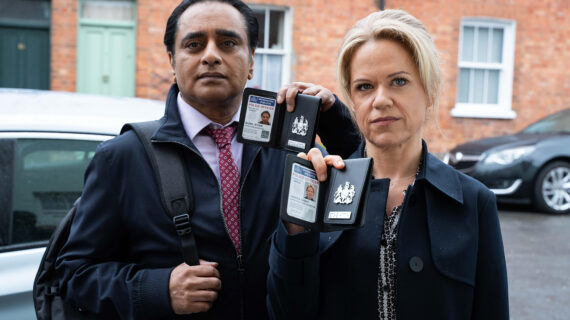
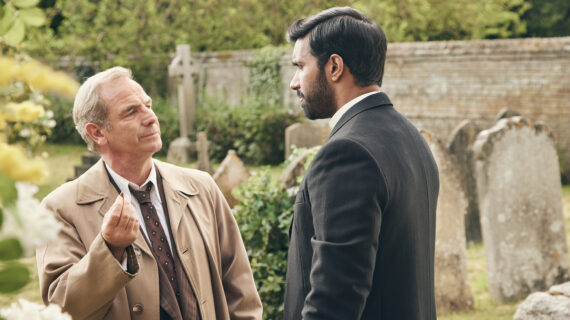


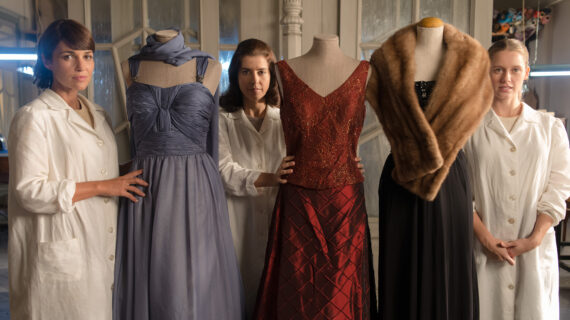


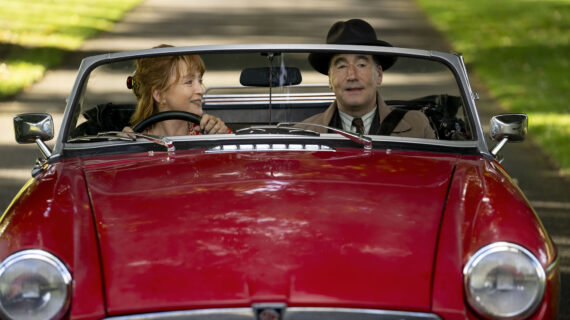
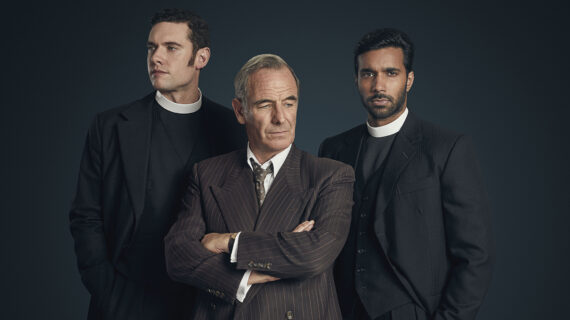
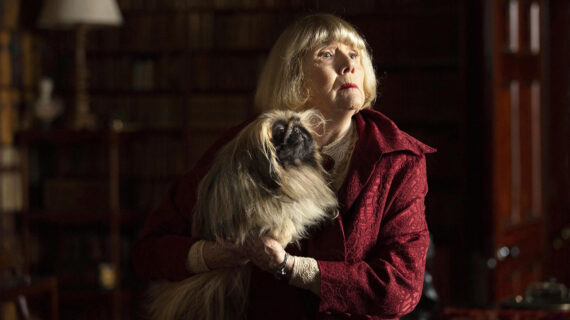

Follow Us